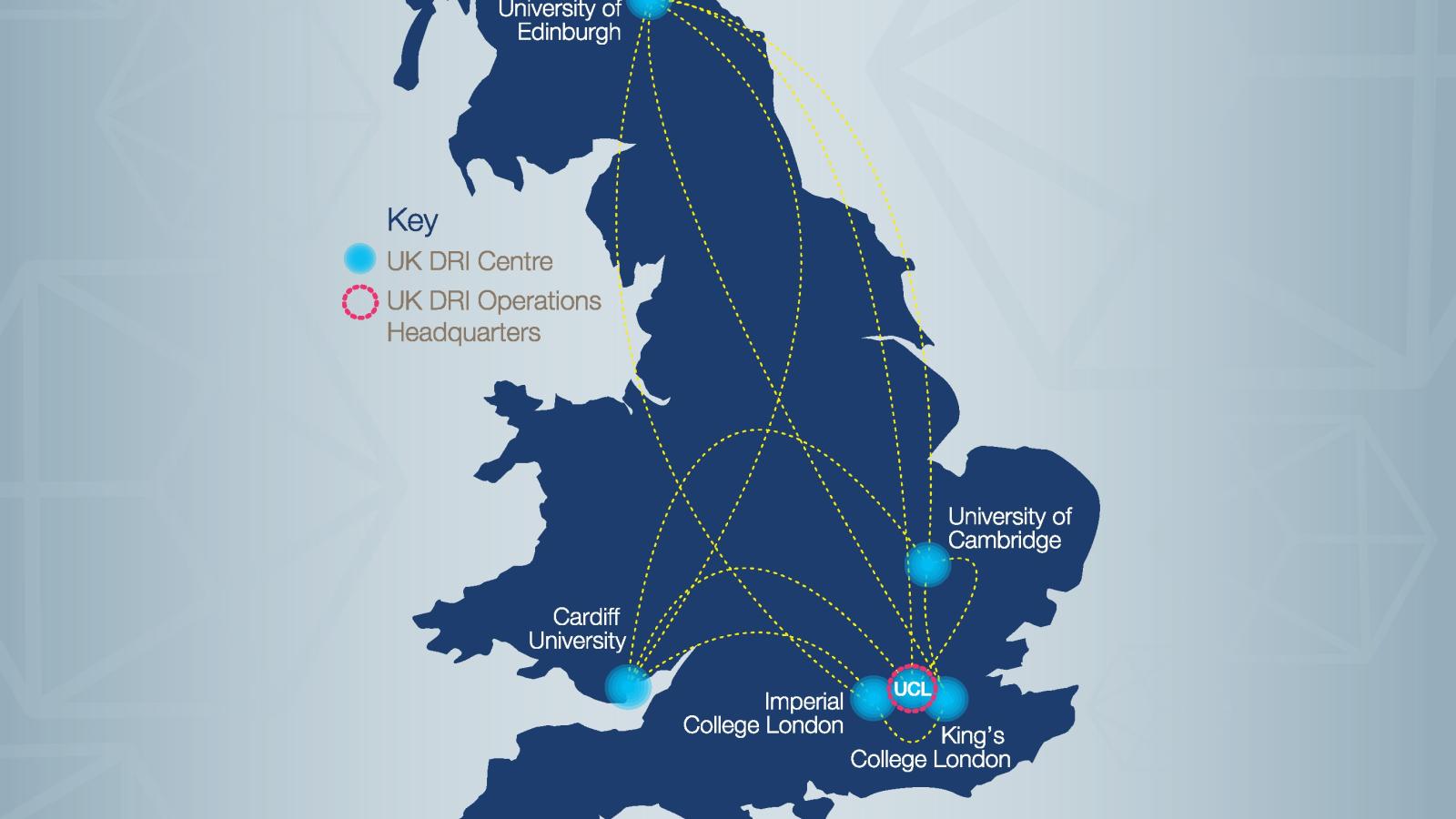The selection of the UK DRI centres marks a huge leap forwards in the establishment of the institute, and ultimately bringing benefits to people with dementia.
Visits
The call for UK DRI centre applications closed in February 2017, and the locations of the centres were chosen in open competition. Applications identified a local centre Associate Director, and additional PIs to lead foundation programmes to begin the establishment of the centres.
The UK DRI Director and representatives from the founding funders visited all applicant universities to gain better understanding and see the facilities available. The UK DRI is grateful to each university for hosting the visits, and assembling senior staff and scientists to provide a view of: the relevant scientific strengths of the university; the level of support to be provided by the university; the university’s research strategy and its impact on dementia research; the university's estates plans; and the university's academic/clinical structure.
Criteria
The centre award decisions were based on clear criteria:
- Leadership: a clear global scientific vision and strategy for the centre, personal leadership skills and ability to work in partnership with the other directors to deliver the institute’s vision.
- Strategic alignment: fit to the institute’s goals to find mechanisms for translation.
- Growth and collaboration: demonstration of how the centre will function immediately and the plans for growth, including collaboration with other dementia focused activities.
- Commitment: demonstration of both the university’s and PI’s commitments.
- Excellence: innovative and ambitious research plans that will bring us beyond the current borders.
Awards: Cambridge, Cardiff, Edinburgh, Imperial College and King’s College London
The panel found the centres selection challenging as the quality of applicants was exceptionally strong. Considering the criteria and the scientific programmes presented, the five awarded universities came out strongest, and the institute looks forward to connecting them further. They join UCL which was selected as the first centre in December 2016.
Next steps
The foundation awards signal the formation phase of the institute, with research underway imminently. Later in 2017, the core phase will begin to develop and build the capacity of the UK DRI further. In addition to biomedical research at the UK DRI, in late 2017 the institute will recruit an associate director to lead on the care strategy.
<p>centres form the UK DRI</p>
